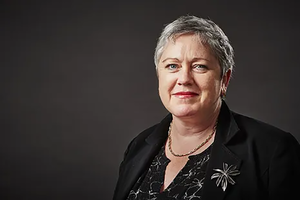Sellafield’s biggest construction project reaping benefits of 4D modelling
The Sellafield Product and Residue Store Retreatment Plant being delivered by the Programme and Project Partners is reaping the benefits of 4D Building Information Modelling (BIM) technology, with the introduction of a second twin ‘BIM cave’ in the project team’s Warrington office.
This follows the introduction of the project’s first BIM cave earlier this year on the Sellafield site.
BIM is a process for creating and managing a digital representation of the physical elements of the project and the information associated with those objects.
The 2 BIM caves and 4D modelling capability bring important benefits to one of Sellafield’s largest ever construction projects, the benefits include greater collaboration to improve project scheduling, planning, communication and enhanced project visualisation.
Steve Harnwell, Sellafield Product and Residue Store Retreatment Plant, delivery director, said:
Increasing our BIM capability enhances the project’s daily ‘line of sight’ planning by improving the connection between our team members in Cumbria and Warrington to visualise the project plan and build sequencing.
We can be looking well ahead of where we are with construction today, reducing risks, the potential for costly delays and we’re already safely accelerating construction in some areas.
There are also significant safety benefits, we now have a live camera feed from the site which means our team members and stakeholders can see what’s going on from the safety of the office, allowing us to avoid the physical risks associated with being on a construction site.
We’re continuing to upskill members of the team on the technology which will benefit every phase of the project lifecycle, even long after the build is complete and operational.
The primary use of the BIM cave on the project to date has been its use with the 4D model which combines the 3D models created throughout the preliminary and detailed design phases of the project, with schedule information.
The model, which is now live linked between the project’s Sellafield site and Warrington offices, and the 4D planning team, is providing real-time updates on construction progress.
Having two BIM caves improves collaboration across the project team, allowing the team to share the project model on and off the Sellafield site, coordinate planning and build sequencing and ensuring all stakeholders have an immersive insight into the project at any time.
Further information
Sellafield construction project brings new digital experience.
The Sellafield Product and Residue Store Retreatment Plant is expected to be ready for active commissioning in 2027 at which point it will safely receive all special nuclear material packages from existing storage locations across the Sellafield site before retreating them into new 100-year packages for safe storage.
The Programme and Project Partners brings together KBR, Jacobs, Morgan Sindall Infrastructure, Doosan and Sellafield Ltd to deliver a 20-year pipeline of major infrastructure projects, each of these projects play a vital role in ensuring Sellafield can safely empty ponds and silos, manage the waste and store it safely for decades to come.

